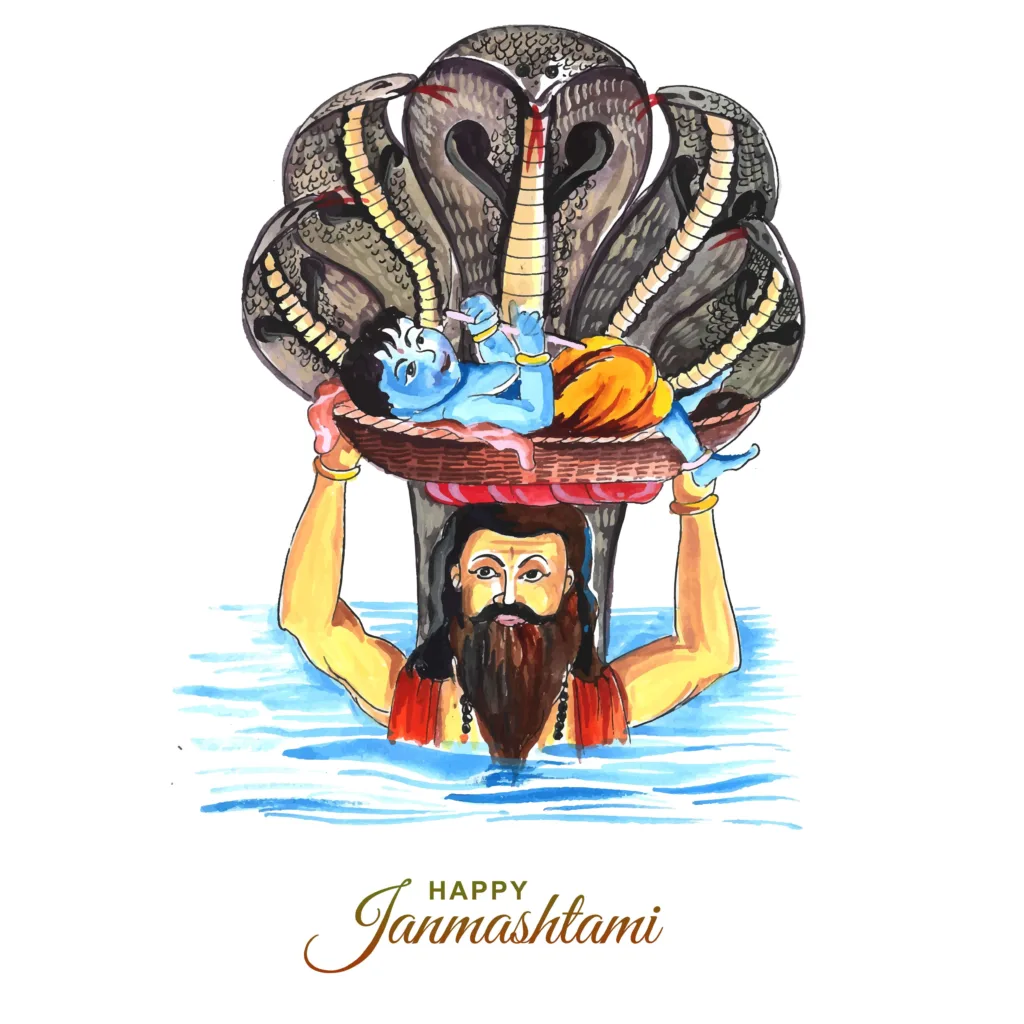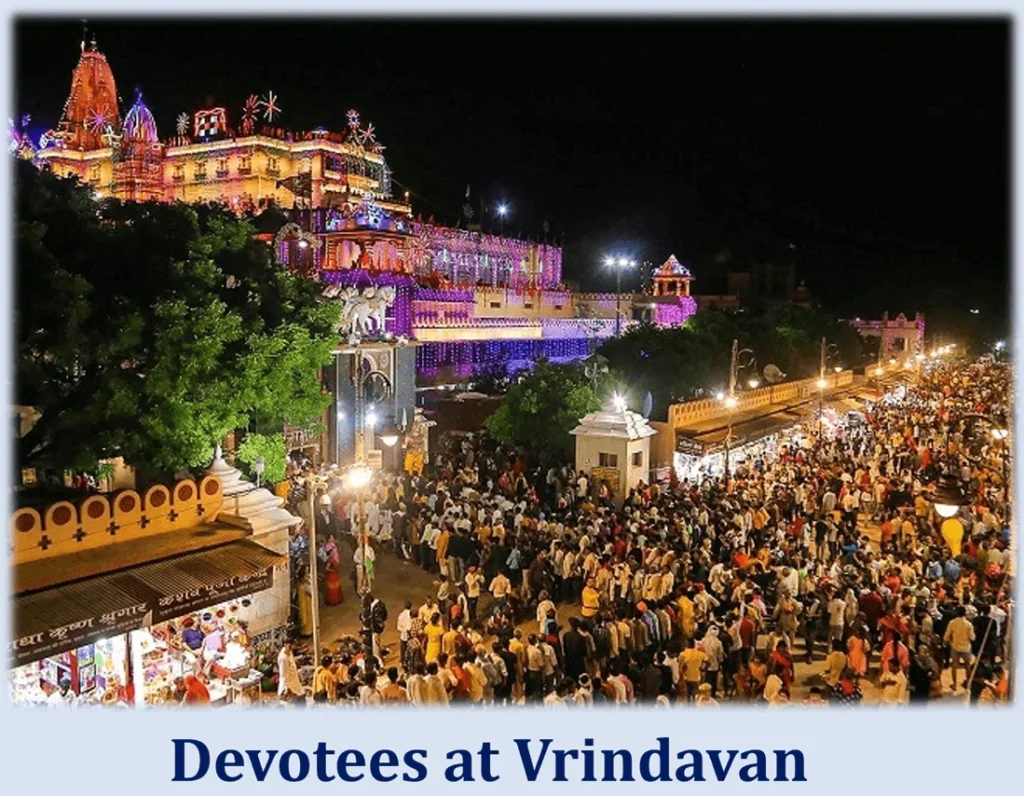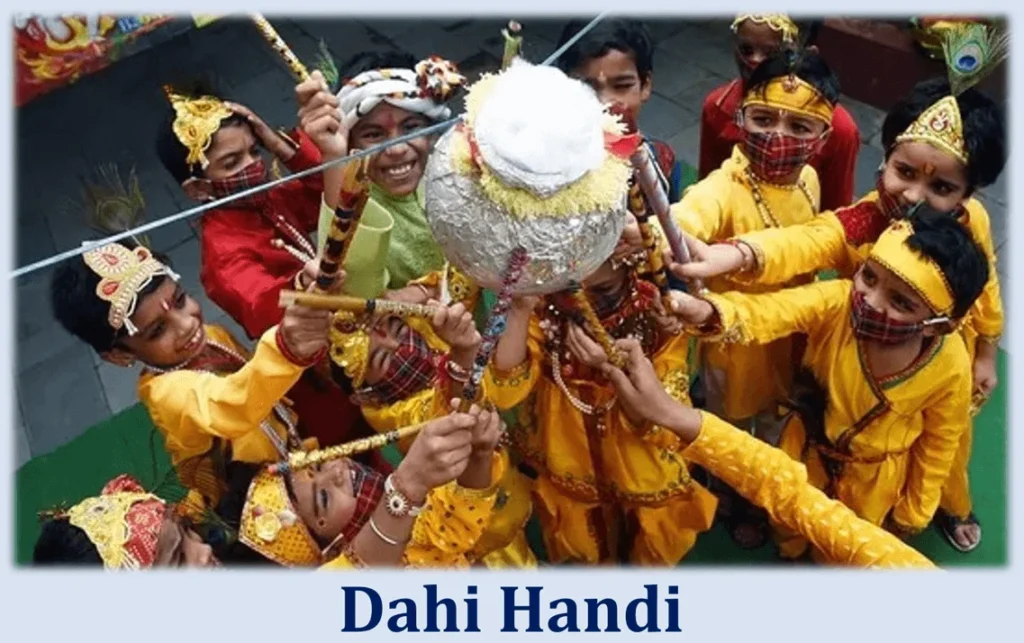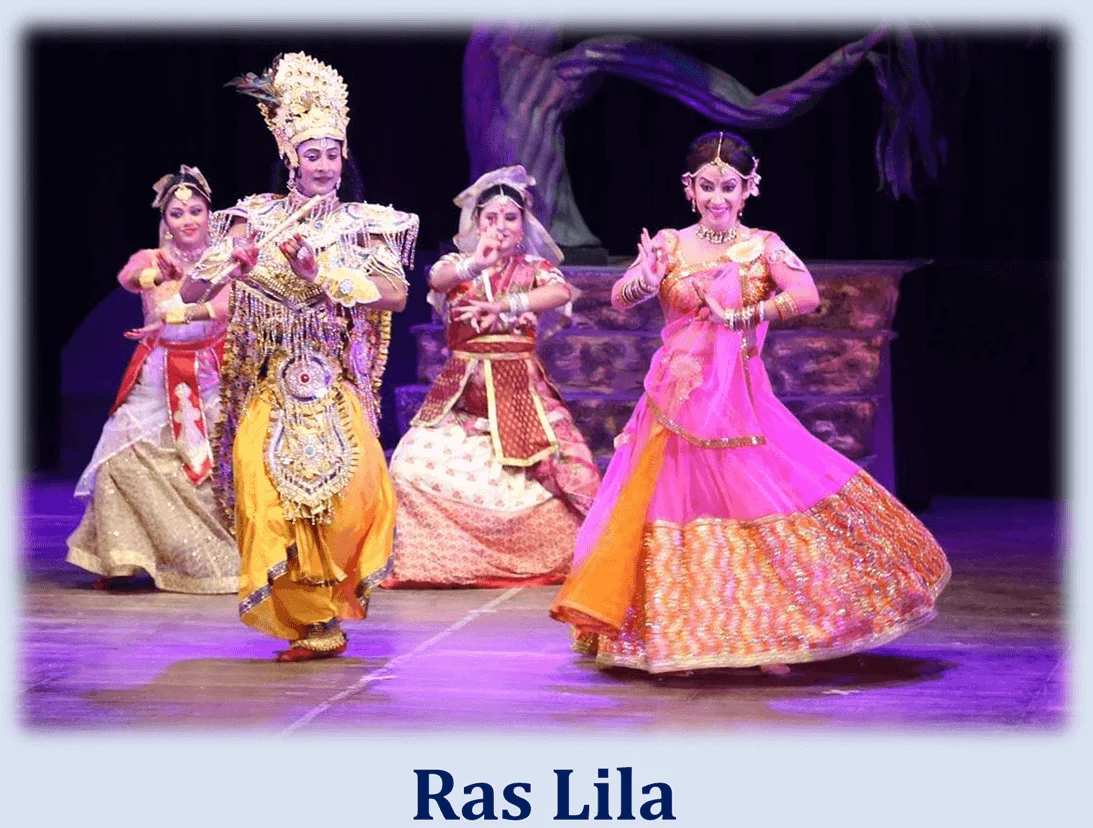
As we approach the auspicious occasion of Kanha Janmashtami 2023, devotees of Lord Krishna around the world eagerly anticipate the celebration of their beloved Lord’s birth. According to Hindu Mythology, it is believed that Lord Krishna is an incarnation of Lord Vishnu in the Dvapara yug. Lord Krishna holds a very important place not only in Hindu mythology but also in the hearts of millions of his devotees. One of the most important and pleasant events for Hindus worldwide is the occasion of Lord Krishna’s birth. Today, I’ll take you all into depth of Kanha Janmashtami through this blog post, including its importance and the ways in which it is observed in India and internationally.
When Will We Celebrate Krishna Janmashtami 2023?
Hinduism celebrates the birth of Lord Krishna every year as a significant occasion and with tremendous zeal. According to the Shrimad Bhagwat Purana, Lord Krishna was born on Ashtami Tithi (the eighth day of the lunar fortnight), under the Rohini Nakshatra (star constellation), in the Taurus zodiac sign and on a Wednesday. Depending on the lunar calendar, this holy event can be celebrated in 2023 on either the 6th or 7th of September.
The Significance of Krishna Janmashtami
According to ancient scriptures, Lord Krishna was born to Devaki and Vasudeva in the city of Mathura on Ashtami Tithi. However, this joyous occasion was marred by the cruel and tyrannical demon king, Kansa, who happened to be Devaki’s brother. A prophecy had foretold that Kansa would meet his demise by the hands of Devaki’s eighth son.
In his desperation to thwart this prophecy, Kansa imprisoned Devaki and Vasudeva and sought to eliminate every child they bore. However, divine interruption came into effect. Therefore, when Devaki gave birth to her eighth son, the entire kingdom of Mathura fell into a deep slumber. This allowed Vasudeva to carry baby Krishna to a safer place. Protected by the king of snakes, Shesnag, Krishna was transported across the Yamuna River to the village of Gokul, where he would grow up under the loving care of Yashoda and Nanda, his foster parents. The incredible escape and how Krishna grew up after that are the main reasons, we celebrate Janmashtami. Afterall, it shows how good can win over bad and it reminds us of the divine care that always keeps Lord Krishna safe.
Customs and rituals of Janmashtami
Janmashtami, the celebration of Lord Krishna’s birth, is observed with a multitude of customs and rituals that vary across different regions of India and among devotees. Here are some of the common customs and practices associated with Janmashtami:
Fasting
Fasting is a common practice among devotees on Janmashtami. Many people observe a strict fast from sunrise to midnight or until the time of Krishna’s birth. During this event some may choose to abstain from food and water. Whereas others may consume fruits, milk and other fasting-friendly items.
Vigil (Jagran)
Devotees often stay awake throughout the night leading up to Janmashtami, engaging in prayer, singing bhajans (devotional songs) and reading sacred texts like the Bhagavad Gita and the Bhagavata Purana. Moreover, temples and homes are beautifully decorated with flowers and lights for the night-long vigil.
Krishna Temples Visit
Devotees visit Krishna temples and places associated with Krishna, especially the famous ones like Mathura, Vrindavan etc. Meanwhile, special decorations, idols and events are arranged at these places. Devotees offer prayers, sing kirtans (devotional songs) and witness various rituals performed by priests.

Abhishek (Holy Bath)
In temples and almost at all Hindu houses the deity of baby Krishna is given an elaborate abhishek, a ritualistic bathing ceremony. Milk, curd, ghee, honey and water are poured over the idol or picture of Krishna. Thereafter, the deity is offered new cloths and ornaments.
Swinging (Jhulan)
A swing (jhula) is prepared for the infant Krishna, symbolizing his childhood and playfulness. Devotees take turns swinging the idol while singing devotional songs.
Dahi Handi
In Maharashtra and some other regions, a popular tradition called “Dahi Handi” is observed. It reenacts young Krishna’s attempts to steal butter from hanging pots. Whereby, groups of young men form human pyramids to reach and break a pot filled with curd, symbolizing the mischief of Lord Krishna.

Offerings and Prasad
Devotees prepare special dishes and sweets, such as makhan (butter), panjiri and various sweets made from milk and dry fruits. All these dishes and sweets are offered to Lord Krishna. After the offerings are made, these items are distributed as prasad (blessed food) among devotees.
Ras Lila and Dance Performances

In some regions, especially in North India, performances known as “Ras Lila” take place. Basically, it is reenacting the divine love dance between Krishna and the gopis (cowherd girls). Devotees may also engage in traditional dances to celebrate Krishna’s birth.
Reading Scriptures
Families often gather to read and recite stories from the life of Lord Krishna. Particularly the stories of his childhood exploits, to understand and appreciate his divine teachings.
Midnight Celebrations
The most significant moment of Janmashtami is when Lord Krishna is believed to have been born, usually at midnight. Devotees break their fast and celebrate this moment with great enthusiasm, singing, dancing and offering prayers to the newborn Lord.
Decorations
Homes and temples are adorned with flowers, rangoli (decorative patterns made with colored powders) etc. Additionally, some people create small footprints leading from their entrance to the prayer room, symbolizing Lord Krishna’s entry into their homes.
Devotional Music and Bhajans
Devotees sing devotional songs and bhajans dedicated to Lord Krishna, recounting his divine deeds and teachings. Finally, an atmosphere of spiritual devotion is created by these songs.
Charity
Giving to the needy and helping those less fortunate is encouraged. During Janmashtami as an expression of Lord Krishna’s teachings on selflessness and compassion.
Janmashtami is a major and spiritually enlightening event for Hindus all over the world due to the customs and rituals that are performed throughout it. These practices range in intensity and style but all center on devotion, celebration and reverence for Lord Krishna.
Celebrations Across India
People celebrate Krishna Janmashtami differently in various parts of India and each place adds its special flavor to the celebrations.
North India
In North India, Janmashtami is celebrated with grandeur, with a focus on the Raas Leela tradition, which reenacts Krishna’s playful dance with the gopis. In Jammu, kite flying is a popular activity during this festival, adding to the merriment of the occasion.
Northeastern and Eastern India
In Manipur, residents perform the Radha-Krishna Raslila, a dance drama that portrays the divine love between Radha and Krishna. Parents dress their children as gopis and Krishna and read from the Bhagavata Gita and the Bhagavata Purana to impart the teachings of Lord Krishna.
West Bengal and Odisha
Known as Sri Krishna Odisha, this region observes fasting and worship throughout the day until midnight. Devotees recite the 10th Purana of the Bhagavata Purana, dedicated to Krishna’s life. The day following Janmashtami is ‘Nanda Utsav,’ a festival honoring Krishna’s foster parents, Nanda and Yashoda.
Rajasthan and Gujarat
In Gujarat, a ritual called Makhan Handi, similar to Dahi Handi, is performed to commemorate Krishna Janmashtami. People engage in folk dances, sing bhajans and visit Lord Krishna’s temples to seek his blessings.
Maharashtra
Gokulashtami, as it is known in Maharashtra, is celebrated on the day following Krishna Janmashtami. It is dedicated to the Dahi Handi festival, where people attempt to break high-hanging pots filled with yogurt. This custom represents Krishna’s playful side because he enjoyed stealing butter and yogurt from houses in his village.
South India
In South India, Gokula Ashtami is celebrated with great enthusiasm. Homes are adorned with Kolam (decorative designs) and devotional songs in honor of Krishna fill the air. His footsteps are depicted on the floor, symbolizing his entry into the house and offerings of butter, betel leaves and fruits are made to Krishna.
Celebrating Krishna Janmashtami Abroad
The devotion to Lord Krishna extends far beyond India’s borders, with devotees in various countries observing Janmashtami in their unique ways.
Nepal
In Nepal, devotees observe a fast until midnight, chanting verses from the Bhagavad Gita and singing religious songs to honor Lord Krishna.
Fiji
Fijian Hindus celebrate Janmashtami, known as ‘Krishna Ashtami,’ by congregating at homes and temples for eight days of festivities with their ‘mandalis.’
USA
In the United States, Hare Krishna communities and their followers begin Janmashtami celebrations early in the morning. Colorful festivities, cultural events and the chanting of Krishna’s name add vibrancy to the day.
Bangladesh
Janmashtami is recognized as a national holiday in Bangladesh, with several processions organized to celebrate the occasion.
Singapore
Cultural events at temples mark the celebration of Krishna Janmashtami in Singapore. The ‘Krishna chanting competition’ is a standout feature of this event, highlighting the devotion of the local community.
A Joyous Celebration
Krishna Janmashtami is a joyous occasion celebrated over 2-3 days by Hindus worldwide. The festivities include dramatic reenactments of Lord Krishna’s life in ‘Krishna Lilas,’ all-night vigils with devotional songs, fasting and a grand feast the following day. Specially crafted sweets and delicacies are distributed and enjoyed by all, symbolizing the love and devotion devotees have for their beloved Lord Krishna.
As we prepare to celebrate Kanha Janmashtami 2023, let us embrace the divinity and spirituality of this auspicious occasion. We should determine to follow the teachings of Lord Krishna. As he laid stress on fighting against evil and injustice. Moreover, he added to sacrifice oneself for the safety of women. But what has happened in Manipur this year depicts that the government has closed the eyes just like Dhritarashtra, allowing Manipur to burn in the fire of violence. But as devotees of Lord Krishna, we must unite to keep the humanity alive. Whether we are in India or anywhere in the world, our devotion to Lord Krishna brings us together in a common celebration of love, faith and the Lord’s timeless teachings. May the festival of Janmashtami bring everyone in its happiness, prosperity and peace.
Jai Shri Krishna!
